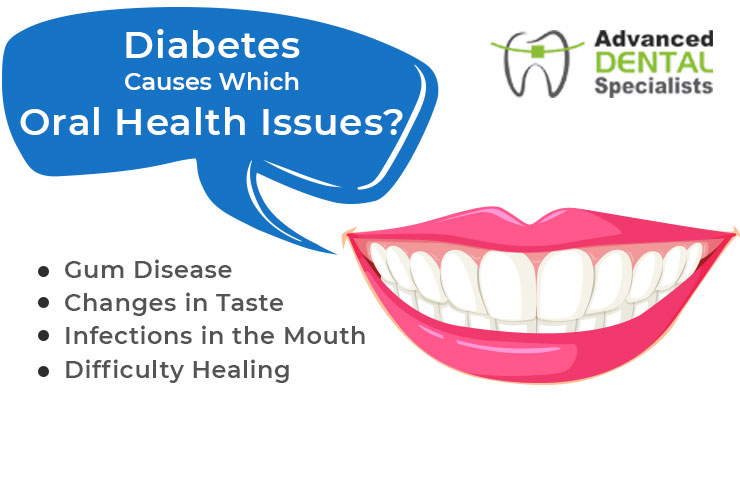In 1975, the American Diabetes Association designated November as Diabetes Awareness Month, and we now use this month to educate the public about diabetes signs, symptoms, and prevention. Because of the specific effects diabetes has on our patients’ oral health, we have a unique viewpoint on it in the dental community.
What Is the Impact of Diabetes on the Body?
Diabetes is a disorder that hinders the body from properly processing sugar, resulting in a buildup of glucose sugar in the bloodstream. These increased glucose levels can cause organ damage over time. Damage to the blood vessels places additional strain on the heart and produces circulation issues, which have a detrimental influence on every system in the body, including the eyes, kidneys, nerves, lower limbs, and even the gums.
Diabetes Causes Which Oral Health Issues?
Talk to your dentist if you have diabetes or are prediabetic, and keep an eye out for any of the following symptoms that could be related:
Gum Disease – For maximum performance, your gums require a healthy blood flow, which diabetes might deprive them of. If you experience significant bleeding while brushing or flossing, or if your gums recede, this could be an indication of gum disease. If left addressed, this could result in tooth loss and other complications.
Diabetes might affect your ability to make saliva, causing thirst and parchedness. Drinking more water can help, but it is an only a short-term treatment. It is critical to discuss the underlying causes of dry mouth with your doctor and address them before your situation worsens.
Changes in Taste – Diabetes might lead you to lose your sense of taste partially or completely. If you have this symptom, it could mean that your diabetes is advancing and that you need medical attention.
Infections in the Mouth — Because diabetes affects the immune system, you may have a more difficult time controlling germs and fungi in your mouth. Thrush is a frequent ailment caused by an overgrowth of the candida fungus. If you have thrush, you should consult a doctor as soon as possible.
Difficulty Healing – Wounds might take substantially longer to heal if you have diabetes. Cuts and sores in your mouth may not heal correctly as a result. This can result in infection and other problems, so it’s critical to address the underlying issue rather than merely treating the symptoms.
While diabetes is the major cause of a slew of health problems, making lifestyle adjustments can help you keep it under control. Speak with your doctor about lifestyle changes including diet, exercise, stopping smoking, and limiting alcohol consumption that can help you control your blood sugar and prevent further organ damage. With diabetes, you can live a long and healthy life, but the sooner you address your problems, the higher your chances of avoiding the worst symptoms.

